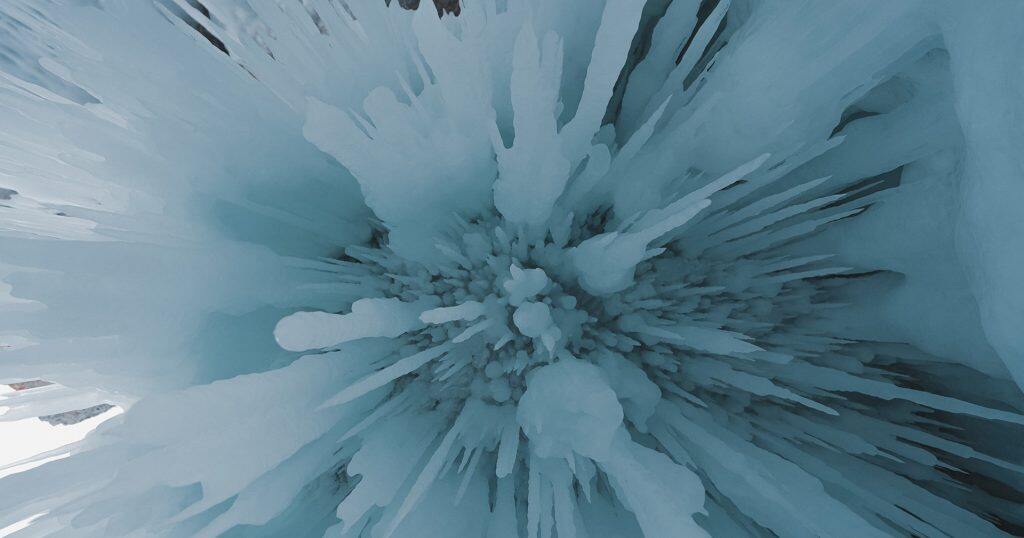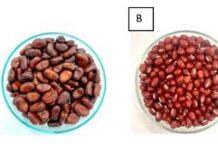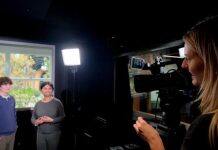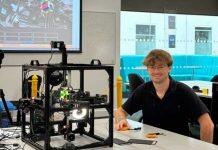

Western Engineering researchers have teamed up with Core Geoscience Services Inc. (CoreGeo) in a project to investigate the use of cryopurification – water treatment by freezing – for treating contaminated water in a mine in Northern Canada.
It is a nature-inspired technology based on physics pointing to ice crystals as essentially made up of pure water.
“When contaminated water is gradually frozen, ice crystals of pure water grow while the contaminants are rejected from the crystal structure into the liquid phase. The technology has shown to be effective for the removal of contaminants from aqueous solutions and has the potential to decontaminate water resources to provide a safe and clean water supply,” explained Ajay Ray, professor, department of chemical and biochemical engineering.
The work is supported by Ray’s colleagues Konstantin Kreyman, adjunct research professor, and Daria Popugaeva, PhD’19, post-doctoral research fellow.


(L-R) Ajay Ray, professor, department of chemical and biochemical engineering; Ethan Allen, principal environmental geochemist at CoreGeo; and Daria Popugaeva, post-doctoral research fellow, department of chemical and biochemical engineering (credit: Western Engineering)
“The prospective to harness the physical processes of ice formation through cryopurification is possible for northern regions such as Yukon, Canada, where the climate is primarily subarctic and mining operations have led to widespread contamination of water sources,” Ray explained. “The application of freezing technology will be particularly beneficial for First Nations communities in northern regions, addressing the lack of access to safe, clean household water in a cost-effective and easy-to-use manner.”
Partnership
Western Engineering’s partnership with CoreGeo is funded through a $600,000 Natural Sciences and Engineering Research Council of Canada Alliance-MITACS grant. The collaboration is a “unique approach” to carry out the comprehensive, innovative and impactful research necessary to advance the project, Ray said.
“This is a great opportunity to continue research that has an immediate impact on the path toward providing environmental sustainability and more importantly, access to clean, safe water for First Nations communities.”
For the last three years, the Western and CoreGeo teams have been working to examine and test the effectiveness of freezing technology for the removal of contaminants (particularly, zinc) from water affected by the Faro Mine, in an environmentally friendly and cost-effective manner. The Faro Mine is an abandoned legacy mine in Yukon.
“As environmental consultants working on mining projects in the North, we noticed changes in quality that pointed to cryopurification as an active natural mechanism. Our aim is to harness this natural mechanism to purify water in cold climates, which we believe may reduce energy and other costs associated with conventional water treatment technologies. Our strategic partnership with Western Engineering will allow us to accelerate towards commercialization of this technology,” said Ethan Allen, principal environmental geochemist with CoreGeo.
The project uses laboratory testing, data analysis, mathematical modelling, bench-scale, and pilot-scale stages, aided by artificial intelligence (AI), to control the efficiency of contaminants removal during the cryopurification process. Successful outcomes achieved to date in laboratory testing and mathematical modeling revealed the advantages and potentials of cryopurification. The application of the process results in a 95 per cent reduction of zinc from the mine-impacted water using single-stage freezing.
Training
The project also provides opportunities for enriched training experiences that include industrial internships for trainees to develop relevant research skills as well as leadership, communication, collaboration and entrepreneurship. The team’s equity, diversity and inclusion training strategy includes implementing an inclusive approach to decision making, open working culture and mentorship.
“Funding support from the NSERC-MITACS will greatly assist our team in proceeding from laboratory testing to bench-scale design and conceptualization, and ultimately testing a pilot-scale reactor. I believe the results of our research could be a solid foundation for the conceptualization of an AI application,” said Popugaeva.
The current project design was developed based on the mutual interests of all team members to maximize the chances for successful results. The goal is to continue advancing the cryopurification mechanism towards commercialization. The team noted the freezing technology has great potential to be scaled up and rolled out at the Faro Mine or other mines, industrial sites, or in First Nations communities.
The research team hopes the current cryopurification project can foster a more sustainable mining industry and can also be applied to improve municipal water treatment processes. In light of climate change and current ecological challenges, the team said cryopurification would be a significant step toward sustainability.







































